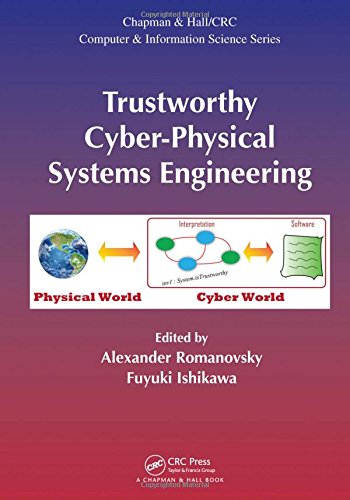

Most ebook files are in PDF format, so you can easily read them using various software such as Foxit Reader or directly on the Google Chrome browser.
Some ebook files are released by publishers in other formats such as .awz, .mobi, .epub, .fb2, etc. You may need to install specific software to read these formats on mobile/PC, such as Calibre.
Please read the tutorial at this link: https://ebookbell.com/faq
We offer FREE conversion to the popular formats you request; however, this may take some time. Therefore, right after payment, please email us, and we will try to provide the service as quickly as possible.
For some exceptional file formats or broken links (if any), please refrain from opening any disputes. Instead, email us first, and we will try to assist within a maximum of 6 hours.
EbookBell Team

0.0
0 reviewsFrom the Foreword
"Getting CPS dependability right is essential to forming a solid foundation for a world that increasingly depends on such systems. This book represents the cutting edge of what we know about rigorous ways to ensure that our CPS designs are trustworthy. I recommend it to anyone who wants to get a deep look at these concepts that will form a cornerstone for future CPS designs."
--Phil Koopman, Carnegie Mellon University, Pittsburgh, Pennsylvania, USA
Trustworthy Cyber-Physical Systems Engineering provides practitioners and researchers with a comprehensive introduction to the area of trustworthy Cyber Physical Systems (CPS) engineering. Topics in this book cover questions such as
Featuring contributions from leading international experts, the book contains sixteen self-contained chapters that analyze the challenges in developing trustworthy CPS, and identify important issues in developing engineering methods for CPS.
The book addresses various issues contributing to trustworthiness complemented by contributions on TCSP roadmapping, taxonomy, and standardization, as well as experience in deploying advanced system engineering methods in industry. Specific approaches to ensuring trustworthiness, namely, proof and refinement, are covered, as well as engineering methods for dealing with hybrid aspects.